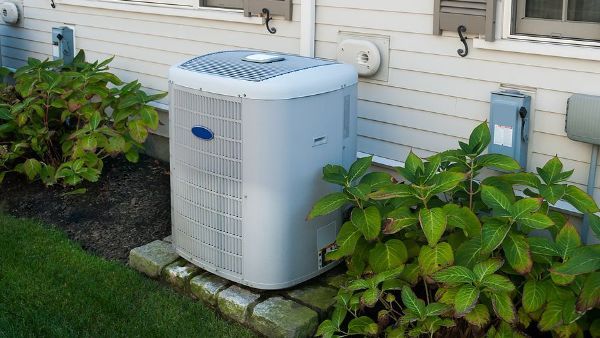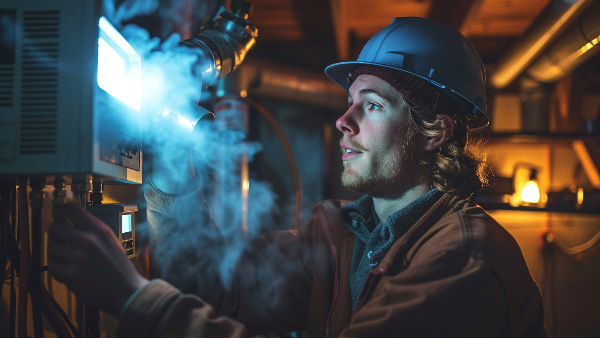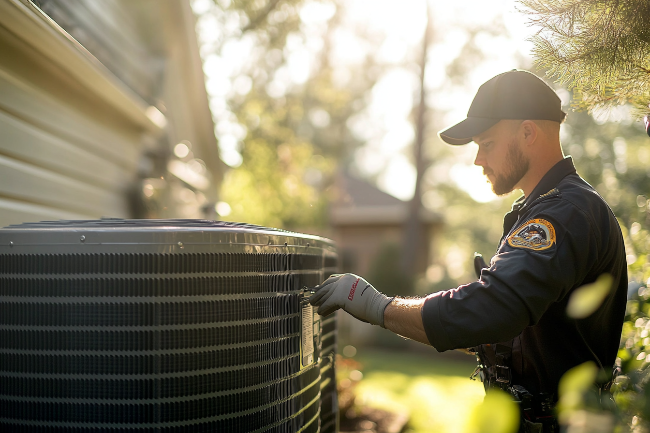GET A FREE QUOTE TODAY - (707) 228-9921
How to Tell If Your AC is Leaking - And What to Do Next
What To Do if You Think Your AC is Leaking
A leaky air conditioning system can cause big problems beyond just discomfort. If you suspect you might need to replace your AC here’s how to know for sure.
How to Know If Your AC Is Leaking
Whether it's water or refrigerant, air conditioner leaks can signal underlying issues that need prompt attention. Here's how you can determine if your AC is leaking.
Water Puddles Around the Unit
One of the most obvious signs of a water leak is the presence of puddles or damp spots around your indoor AC unit. If you notice water pooling on the floor or near the unit, it's a strong indicator that something is wrong.
Higher Humidity Levels Indoors
Your air conditioner not only cools your home, but also removes excess humidity from the air. If you start to feel more humidity indoors, it might be because your AC is leaking water and not dehumidifying as it should.
Unusual Sounds
Hearing unusual sounds from your AC, like a hissing or bubbling noise, can indicate a refrigerant leak. These sounds are often caused by the refrigerant escaping from the lines and can signal a more serious issue that requires professional attention.
Ice Buildup on the Evaporator Coil
If you notice ice forming on the evaporator coil or other parts of the AC unit, it could mean that there's a refrigerant leak or the coil is freezing due to another issue. As the ice melts, it can lead to water leaks.
What Are the Most Common Reasons for an AC Leak?
Several factors can cause your air conditioner to leak water. Here are the most common culprits.
Clogged Drain Line
The drain line is responsible for removing condensation produced by your AC. Over time, it can get clogged with dirt, algae, or debris, causing water to back up and leak out of the unit. Regular maintenance and cleaning can prevent this issue.
Dirty Air Filter
A dirty air filter restricts airflow, causing the evaporator coil to freeze. When the coil melts, excess water can overflow the drain pan, leading to leaks. Checking and replacing air filters every one to three months can help maintain optimal airflow and prevent leaks.
Low Refrigerant Levels
When refrigerant levels are low, the pressure in the AC system drops, which can cause the evaporator coil to freeze. As it melts, water can leak from the unit. Low refrigerant levels usually indicate a leak in the system, requiring professional attention.
Damaged or Rusty Drain Pan
Older AC units often have drain pans that become damaged or rusted over time. A compromised drain pan won't hold water properly, leading to leaks. Inspecting the drain pan during regular maintenance checks can help identify and address this issue early.
Improper Installation
If your AC unit was not installed correctly, it might not be level. An unlevel unit can cause water to flow in the wrong direction, leading to leaks. Ensuring proper installation by a certified technician can prevent this problem.
Is It Leaking Water or Refrigerant?
Determining whether your AC is leaking water or refrigerant is essential for diagnosing the problem. Here's how you can tell the difference:
Water Leaks
- These typically occur due to issues like a clogged drain line or a dirty air filter.
- They’re accompanied by water pooling around the indoor unit.
- They usually involve excess condensation that has nowhere to go.
Refrigerant Leaks
- These are indicated by a noticeable decrease in cooling efficiency.
- They produce a hissing or bubbling sound near the refrigerant lines.
- They can be hazardous, requiring immediate professional attention.
If you suspect a refrigerant leak, it's crucial to contact a professional technician to handle the repair, as refrigerants can be harmful to the environment and your health.
Who Can Help Get Your AC Up and Running?
When dealing with an AC leak, it's best to contact a professional HVAC technician. They have the expertise to diagnose and repair the issue efficiently. Get in touch with the pros at Next Level Heating and Air Conditioning to learn more about how to deal with a leaky air conditioning system.
Comments
More Posts That Might Interest You
Take Your Home Comfort To The Next Level
Whether you need your furnace replaced or your AC repaired, we've got you covered.

Next Level Heating & Air Conditioning Inc.
© 2018 Next Level Heating & Air Conditioning. All rights reserved.
Website Design and SEO by Fitz Designz








